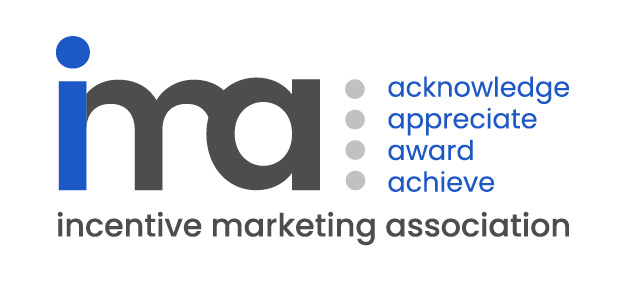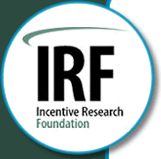Promoting, protecting, and researching the optimal use of incentives, corporate gifts, rewards, recognition, awards, incentive travel, promotional products and related promotions in business.
Current Legal/Legislative Updates and IFI Initiatives
The Proposed Credit Card Competition Act of 2023 Might
Make It Easier to Eliminate Credit Card Rewards Programs
On June 7, 2023, a bipartisan group of legislators led by Sen. Dick Durbin (D-IL), Sen. Roger Marshall, M.D. (R-KS), Sen. Peter Welch (D-VT), and Sen. J.D. Vance (R-OH) introduced H.R. 3881/S.1838, the Credit Card Competition Act of 2023 (the “CCC Act”), in an effort to change the way credit card transactions are processed thereby lowering credit card processing fees. The duopoly of Visa and Mastercard controls over 80 percent of the U.S. credit card network market, and every time someone uses a Visa or Mastercard credit card, an average fee of 2 to 3 percent is imposed on and deducted from the transaction amount the merchant actually receives. Visa and Mastercard keep some of that fee for themselves as a network fee, but most of it is an interchange fee that is fixed by Visa and Mastercard but paid to the bank that issued the card. As a result, a merchant typically ends up receiving $97 or $98 on a $100 sale. See the full Washington Update Report by clicking here.
Perhaps the most important consequence of the CCC Act, intended or not, would be on credit card reward programs. As matters stand now, the largest component of the network interchange fee merchants pay goes to finance credit card rewards programs. In turn, these rewards programs generate more transactions on such rewards cards. This means that merchants end up financing rewards programs, albeit indirectly, but they derive no tangible benefit from them. Instead of producing additional sales for merchants, rewards programs reduce merchant profits by motivating consumers to shift transactions from cheaper payment systems to the more expensive cards with rewards programs. Even though they finance rewards programs, Visa and Mastercard often prohibit merchants from charging consumers higher prices based on means of payment due to merchant restraint rules that prevent them from accepting certain cards selectively or charging higher prices to customers who use them.
According to Georgetown University commercial and bankruptcy law expert Professor Adam Levitin, merchant restraint rules “encourage more credit card transactions at a higher price than would occur in a perfectly efficient market. The restraints also permit card issuers to externalize the costs of rewards programs to merchants and, ultimately, to consumers who do not use rewards cards.” Likewise, a working paper from the Federal Reserve Bank of Boston argues that reducing merchant fees and card rewards would save consumers money and improve consumer welfare, especially for lower income households that typically do not use but indirectly subsidize rewards cards. (Scott Schuh, Oz Shy, and Joanna Stavins, “Who Gains and Who Loses from Credit Card Payments? Theory and Calibrations,” Federal Reserve Bank of Boston, August 31, 2010, file:///C:/Users/Chris%20Delta/Downloads/ppdp1003.pdf) A staff working paper published by the Federal Reserve Board in 2023 has reached similar conclusions.
The IFI Provides Guidance for Clients About Tax Considerations When Employing Various Incentive Programs
The Incentive Federation, Inc. has released its latest project entitled “Tax Considerations for Incentives, Recognition and Safety Programs,” a compilation of numerous industry papers and presentations published by industry experts. The project to consolidate complex information from numerous lengthy documents into simple PowerPoint presentations and infographics, such as the Roadmap to Tax Compliance infographic, was headed by Mike Donnelly, President of Hinda Incentives and an IFI Board member.
Incentive, recognition, and safety programs are designed to engage eligible participants, improve performance, and encourage loyalty. These programs can excite and motivate eligible participants to take actions the sponsor promotes while simultaneously creating advocates for the company. Rewards often have tax consequences for either the recipient or the sponsor and this new project provides easy to understand guidance for sponsoring companies.
The user-friendly PowerPoint Summary and infographic presentation tools are available online at www.incentivefederation.org and are ideal to provide to any client that may find the IRS rules and regulations confusing or intimidating.
The recording of our webinar hosted by IMA on February 22, 2024, can be viewed here.
These new simplified documents cover the tax treatment of employee service awards, safety incentive programs and travel incentive programs among others. The I.R.S. tax code provides some exemptions to the taxability of recognition and awards programs, and employers need to be aware of how various employee recognition awards are viewed by the I.R.S.
The IFI has researched and published extensive information about these topics for many years and this recent compilation is especially designed for the clients of incentive industry companies designing and providing recognition, awards, and rewards programs. Detailed articles and research presentations are linked to the core PowerPoint document available on Slide 14 above and provide employer personnel with additional support information if needed.
U.S. Businesses Spend $176 Billion on Incentives, Recognition, Rewards, Incentive Travel and Corporate Gifting New Incentive Market Study Shows
The 2022 Incentive Marketplace Estimate Research Study released by the Incentive Federation (IFI) reveals that 84% of U.S. businesses spend $176 billion annually on award points, gift cards, trips and travel, merchandise, and experiential rewards to reward sales staff, employees, channel partners and customers.
IFI’s study shows the non-cash incentives market grew a remarkable 49% since the last market estimate study in 2016. In addition, 92% of companies with revenues of $5 million or more use at least one form of non-cash incentive program. Gift cards, including digital gift cards, are most prevalently used in all programs, with Award Points the second most used in three of four program types. Trips and travel are used as rewards in sales incentive programs and channel/distributor/partner programs more often than in the other targeted types. Branded Merchandise and logoed merchandise are the most prevalent uses for client gifts, which are used in 75% of companies with more than $1 million in revenues.
The study, conducted in May/June 2022, sought responses from companies that use incentive tools and services such as award points, gift cards, travel and trips, merchandise (both branded and logoed) and experiential awards (which were included for the first time in this latest study).
The Incentive Federation conducted the survey in partnership with Rickard Garlick & Associates Consulting and Market Research Services. Data was drawn from a national sample of 1,000 business executives responsible for non-cash incentive programs in companies with at least $1 million in revenues.
The study also revealed:
- Companies with revenues from $1 million – $10 million represented 91% of businesses in the overall sample.
- Non-cash sales incentives and employee rewards are the most prevalent forms of non-cash incentives, with 55% of businesses using sales programs and 70% of companies having employee programs.
- Non-cash customer loyalty programs are used in 55% of firms, while 48% of companies use non-cash channel/distributor/partner programs.
The full study white paper, with extensive explanations of the methodology and approaches used as well as detailed comparisons of the types of incentives used for the various audiences are now available to industry companies. The reports will also include easy to understand and useful infographics that can be shared with clients.
To see the final white paper report of the study, click here.
For a detailed reference deck that explains in detail the methodology used, click here.
For brief infographics that highlight the study’s results, click here.
To view the recording of the IFI webinar from August 25, 2022, click here.
To partially fund the costs of the study, we sought sponsorships from our IFI membership and the industry. We are pleased to report that we received commitments from the following companies to sponsor this important research study. These sponsors will have their company names and/or logos associated with the final reports indicating their support to the industry and the research.
Major Association Sponsors
Incentive Marketing Association
Incentive Research Foundation
Promotional Products Association International
Major Corporate Sponsors
Blackhawk Network
E2E Group
GiftNow
Hinda Incentives
Inspirus/Sodexo Benefits and Rewards Services, USA
Marketing Innovators International
Promotion, Incentive & Engagement Professionals
RepLink/DataDirect Group
Tango Card
Contributing Sponsors
All Star Incentive Marketing
Citizen Watch America
Fujifilm North America
Seiko Watch of America LLC
Contributors
Enterprise Engagement Alliance
Logos Communications






